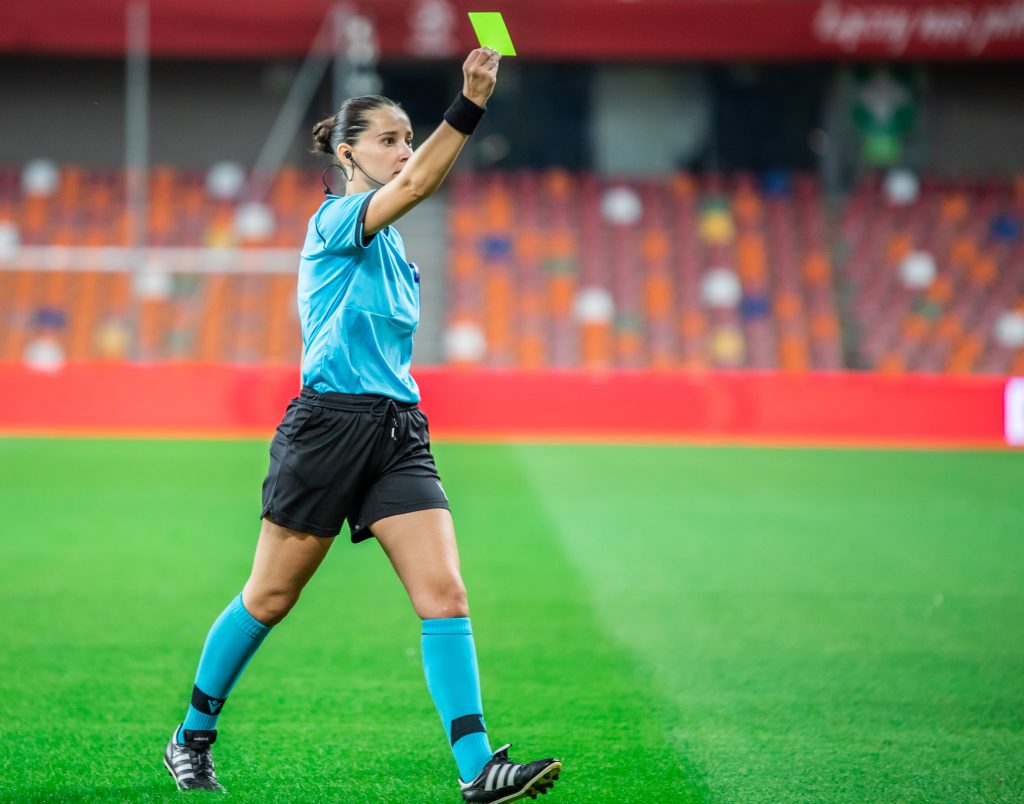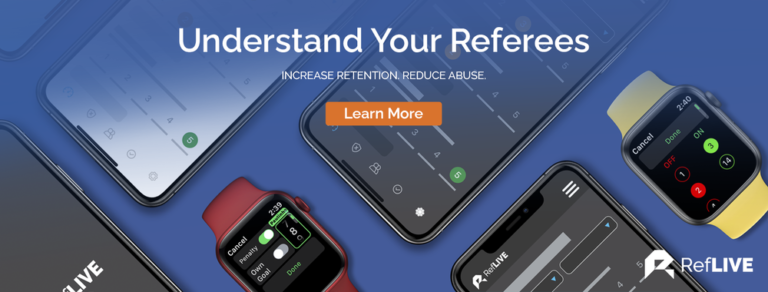Think about what types of adversity have created difficulty for your refereeing career in the past?
Maybe you have experienced an injury or gone through a period of long-term ill-health. It is possible that you may have been stood down from a round of of fixtures or appointed to a lower league game. You may have made an error on a Key Match Incident (KMI) or missed out on promotion. Personal issues in our lives beyond our identities as officials can also be reasons why we have been met with adversity.
Adversity can be challenging depending upon your perspective, in comparison to your refereeing colleagues. Currently, the Coronavirus pandemic is creating huge obstacles for all officials. You, as well as every other referee, are experiencing, yet more disruption to your life and your ability to officiate matches. You may feel as if this pandemic is ruining the hopes and dreams you had for this season, such as achieving a promotion.
Adversity is similar in nature but different in intensity. When you hit adversity in your refereeing career, it may feel as though you can do nothing about it, but that mindset leaves you feeling helpless and down. No matter what you are facing, taking positive action will help alleviate the stress of adversity. For example, it may be true that you may not be able to perform at your peak when you are injured or your appointed fixture is postponed, but you still can do something. You can make use of your unexpected free time to improve your mental game, strengthen weak body parts or practice your Law knowledge.
It may seem hopeless when you are injured or your appointed fixtures are postponed, but you can still do something to positively impact your performances when you are back out in the middle. You can look for new ways to improve your management techniques, improve your conditioning or work on weak parts of your game, such as foul identification.
You may feel that it is impossible when you are dealing with personal issues or are making your return following a period of long-term ill-health, but you can still do something positive to raise your refereeing ability level. You can learn to communicate better, take responsibility for making a KMI or find resources to help resolve personal challenges.
- Taking positive action when faced with adversity is empowering.
- Taking positive action prepares you for future challenges you may face when back out in the middle.
- Taking positive action prepares you to officiate under pressure conditions during key fixtures.
- Taking positive action in tough times builds mental toughness.
Away from football, the Coronavirus pandemic has already caused the postponement of the 2020 Tokyo Olympics. This postponement was hard to deal with for every athlete prepared to showcase their skill and ability on the world stage.
Portuguese triathlete Pedro Gomes, who’d spent hundreds of hours training and preparing for the biggest competition in the world, was left to face adversity on a large scale.
“Mentally, I was definitely lost. I just did not know how long the pool was going to be closed. The uncertainty of not knowing when this is going to end and being completely out of my control, it was something scary.” – Pedro Gomes, Triathlete
Gomes decided to take positive action. He took to his indoor bike trainer and virtually raced against his friends. Taking charge of your situation, just as Gomes did, helps you take back some control and leaves you feeling empowered. Taking positive action builds resilience and mental toughness. Overcoming adversity makes you a better, more prepared referee as long as you maintain the right perspective.
How to Improve as a Referee When Adversity Strikes
When adversity strikes, think about two positive actions you’ll take to improve as an official, no matter your situation. Commit to improving your refereeing ability by working on your fitness, Law knowledge or mental game. When should you work on your mental game? I’d say, during your pre-season, during the season and any time you can’t train due to facing an adverse situation.
At The Third Team I work individually and in collaboration with different professionals where I have developed workshops associated with Resilience and Mental Toughness Development to help referees. The workshops are interactive, where referees are encouraged to open up and share their experiences to help each other.
Feel free to contact me if you’d like to know more about my workshops and how I could help you or your officials.
Best Wishes,

Nathan Sherratt
Referee Educator & Managing Director of The Third Team

Nathan Sherratt
Nathan Sherratt, Referee Educator, Resilience Trainer and Managing Director of The Third Team. A Mental Toughness Practitioner based in County Durham, North East England.


